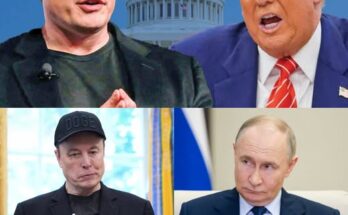
In a series of recent statements, U.S. President Donald Trump has controversially attributed the ongoing war between Russia and Ukraine to Ukrainian President Volodymyr Zelenskyy, suggesting that Ukraine “ should’ve never started” the conflict and that Zelenskyy “ could’ve made a deal” to prevent it. These remarks have sparked significant debate and concern among international leaders, policy experts, and the public.
During a press conference at his Mar-a-Lago residence, President Trump criticized President Zelenskyy’s leadership, alleging that Ukrain’s actions were a catalyst for the war. He stated, “ You should have ended it three years- you should have never started it. You could have made a deal.
Trump further claimed that Zelenskyy’s approval rating was as low as 4%, a figure starkly contrasted by polls indicating approximately 50% approval. He used this assertion to question the legitimacy of Ukraine’s leadership and governance amidst the conflict.
Ukrainian officials have expressed dismay at being excluded from recent U.S.-Russia peace talks held in Saudi Arabia. President Zelenskyy voiced his frustration, stating that discussions about Ukraine’s future were occurring without Ukrainian representation: “ Ukraine, Europe in a broad sense ……¦ should be involved in conversations and the development of the necessary security guarantees.
Internationally, Trump’s remarks have been met with criticism. Analysts argue that attributing the war’s inception to Ukraine overlooks the broader context of Russian aggression and undermines the experiences of those affected by the conflict. Critics also contend that such statements could embolden adversarial actions by Russia and compromise the sovereignty of Ukraine.
President Trump’s comments signal a potential shift in U.S. foreign policy, emphasizing a more isolationist stance and a reevaluation of support for Ukraine. This perspective raises questions about the future of U.S. involvement in Eastern Europe and the broader implications for NATO alliances. The suggestion that Ukraine should have negotiated with Russia prior to the invasion implies a possible U.S. endorsement of concessions to aggressive actions, a stance that could redefine international norms regarding sovereignty and territorial integrity.
The conflict between Russia and Ukraine escalated in 2022 when Russia launched a full-scale invasion, leading to widespread devastation and loss of life. Ukraine has consistently maintained that it was defending its sovereignty against unprovoked aggression. The international community, including the United States, has largely supported Ukraine through economic sanctions against Russia and military aid to Ukrainian forces.
President Trump’s recent statements diverge from this approach, suggesting that alternative diplomatic actions by Ukraine could have averted the conflict. This narrative has sparked debates about the responsibilities of nations in the face of aggression and the role of international alliances in deterring conflicts.


